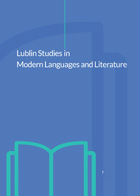The Diamond Turned Ash: Some Remarks on Baranczak's Translation of G.M. Hopkins's "As Kingfishers Catch Fire"
The Diamond Turned Ash: Some Remarks on Baranczak's Translation of G.M. Hopkins's "As Kingfishers Catch Fire"
Author(s): Aleksandra KędzierskaSubject(s): Literary Texts
Published by: Wydawnictwo Naukowe Uniwersytetu Marii Curie-Sklodowskiej
Summary/Abstract: Anybody familiar with the work of Gerard Manley Hopkins realizes the cardinal importance of his notion of "inscape" - the foundation determining the specificity and uniqueness of his poetry. Though in existence since 1868, "inscape" - one of Hopkins's most famous coinages (cf. MacKenzie 232), indeed "the most famous word he contributed to out [English] language" (Martin 205)- revealed its full significance at Stonyhurst where, in the writings of Joannes Duns Scotus, the medieval Franciscan scholastic, Hopkins found "a philosophical framework for his poetic attitude to nature" (Kenny 9). At the heart of this attitude lay the poet's awareness of the infinite variety of and abundance in creation, whose every single species possessed its God-given distinctive character, "the inner coherence of the individual, distinguishing it from any other example" (Martin 205). In his sacramentalized world "full of inscape", any apprehension of beauty invariably led the onlooker "deep down things", where, inherent in each unique selfhood, the divine presence manifested itself, both as stress and "instress" - the energy producing and sustaining "inscape", the selving force of each thing without which it becomes meaningless.
Journal: Lublin Studies in Modern Languages and Literature
- Issue Year: 27/2003
- Issue No: 1
- Page Range: 27-39
- Page Count: 13
- Language: English

